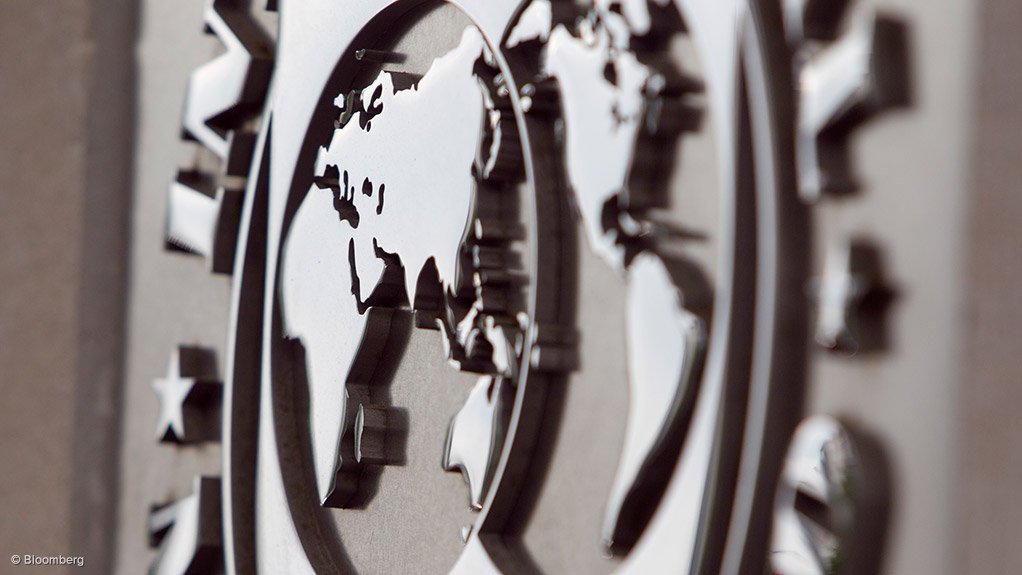Debt squeeze leaves sub-Saharan Africa's governments in fiscal bind
The International Monetary Fund (IMF) urged sub-Saharan African policymakers last week to cut costly fuel subsidies and raise more in taxes, measures that may be hard to implement as governments grapple with tough spending choices amid high debt.
The region has been hit by repeated economic shocks since 2020, from the Covid-19 pandemic to Russia's invasion of Ukraine and rising US interest rates, putting cash-strapped, debt-laden governments in a political and fiscal bind.
However, the IMF's prescriptions, set out at its annual meetings last week, are often painful to administer. Countries from Ghana, which defaulted on its debts last year, to Kenya, which must pay back or refinance a $2-billion international bond before next June, have seen violent protests against tax hikes and subsidy removals.
Meanwhile, the region's debt-to-GDP ratio, which has already doubled to 60% in the last decade, could rise 10 percentage points in the next five years if its fiscal trajectory doesn't change, according to a recent International Monetary Fund (IMF) report.
"We're doing our utmost to avoid this being a period of ... spending on health and education being harmed," Abebe Selassie, the IMF's African department director, told Reuters in an interview.
"The danger that I see, if the financing squeeze persists, is exactly that that would happen."
HARD CHOICES
Many African governments are having to slash spending when the continent's booming population and climate change mean that demand for public money is growing.
Earlier this month, Kenya's cabinet ordered government departments and ministries to cut 10% from their operational budgets for the fiscal year ending in June 2024.
Oil-dependent Angola, where crude production has been lower than expected, is going through "extreme austerity", finance minister Vera Daves de Sousa told Reuters.
The country froze some non-social spending two months ago, such as capital expenditure on projects that are less than 80% complete, she said.
"We have to freeze up some expenditure just to make sure that we manage to continue servicing the debt and paying salaries and making sure that the country is functioning."
Developing countries' interest payments have grown faster than public spending on health, education and investment over the last decade, a United Nations Global Crisis Response Group report in July showed.
Sub-Saharan Africa's ratio of debt interest payments to government revenues of about 10.5% has more than doubled in the last decade and is about three times that of developed countries, according to the IMF.
In many countries that ratio is much higher. Ratings agency Fitch forecasts it will reach 40% in Nigeria and 28% in Kenya, for example, next year.
High interest rates make refinancing debt prohibitively expensive for most African countries and have weakened their currencies against the US dollar.
Public spending could drop in real terms for the next five years in 26 sub-Saharan African countries, according to forecasts by Oxfam International, an anti-poverty NGO.
"If you educate the people, you're also going to increase productivity, you're also going to increase human capital," said Anthony Kamande, Oxfam's inequality research coordinator.
"But how are they going to do that if they do not have money, if the little that they have they are just spending on debt servicing?"
Some governments are taking the advice doled out by the IMF to cut fossil fuel subsidies that the fund says benefit wealthier people.
Senegal, Angola and Nigeria are among the African countries that have started to remove the costly but popular benefit.
In Angola, their partial removal earlier this year sparked deadly protests and its finance minister said it was considering slowing plans to axe the rest of the subsidies by 2025.
The IMF has warned that if Angola does not do so, then it will have much lower financial buffers to weather more economic shocks, such as oil prices falling.
"For us, the most important thing was to accept that we have a problem," Zambia's finance minister Situmbeko Musokotwane told reporters in Marrakech last week, referring to the country's decision to restructure its debts after defaulting in 2020 and to implement economic reforms.
"To be able to pay for every child in school, we had to end subsidies on fuel because we could not do both," he said. "We had to make those hard choices."
Comments
Press Office
Announcements
What's On
Subscribe to improve your user experience...
Option 1 (equivalent of R125 a month):
Receive a weekly copy of Creamer Media's Engineering News & Mining Weekly magazine
(print copy for those in South Africa and e-magazine for those outside of South Africa)
Receive daily email newsletters
Access to full search results
Access archive of magazine back copies
Access to Projects in Progress
Access to ONE Research Report of your choice in PDF format
Option 2 (equivalent of R375 a month):
All benefits from Option 1
PLUS
Access to Creamer Media's Research Channel Africa for ALL Research Reports, in PDF format, on various industrial and mining sectors
including Electricity; Water; Energy Transition; Hydrogen; Roads, Rail and Ports; Coal; Gold; Platinum; Battery Metals; etc.
Already a subscriber?
Forgotten your password?
Receive weekly copy of Creamer Media's Engineering News & Mining Weekly magazine (print copy for those in South Africa and e-magazine for those outside of South Africa)
➕
Recieve daily email newsletters
➕
Access to full search results
➕
Access archive of magazine back copies
➕
Access to Projects in Progress
➕
Access to ONE Research Report of your choice in PDF format
RESEARCH CHANNEL AFRICA
R4500 (equivalent of R375 a month)
SUBSCRIBEAll benefits from Option 1
➕
Access to Creamer Media's Research Channel Africa for ALL Research Reports on various industrial and mining sectors, in PDF format, including on:
Electricity
➕
Water
➕
Energy Transition
➕
Hydrogen
➕
Roads, Rail and Ports
➕
Coal
➕
Gold
➕
Platinum
➕
Battery Metals
➕
etc.
Receive all benefits from Option 1 or Option 2 delivered to numerous people at your company
➕
Multiple User names and Passwords for simultaneous log-ins
➕
Intranet integration access to all in your organisation




















